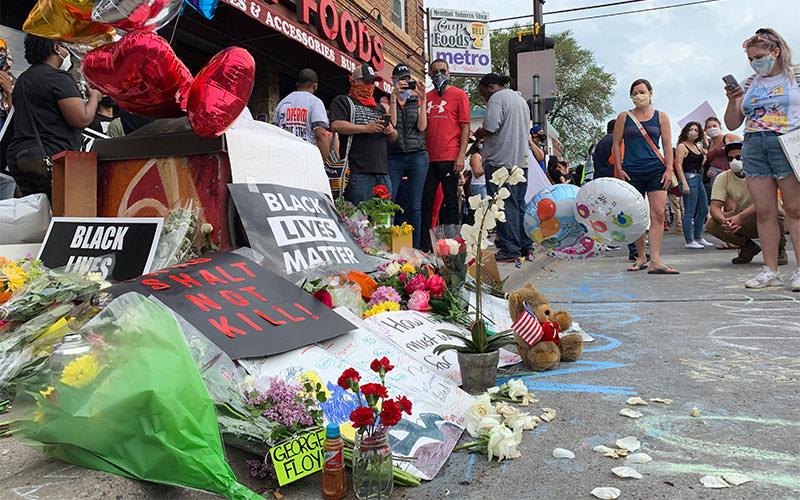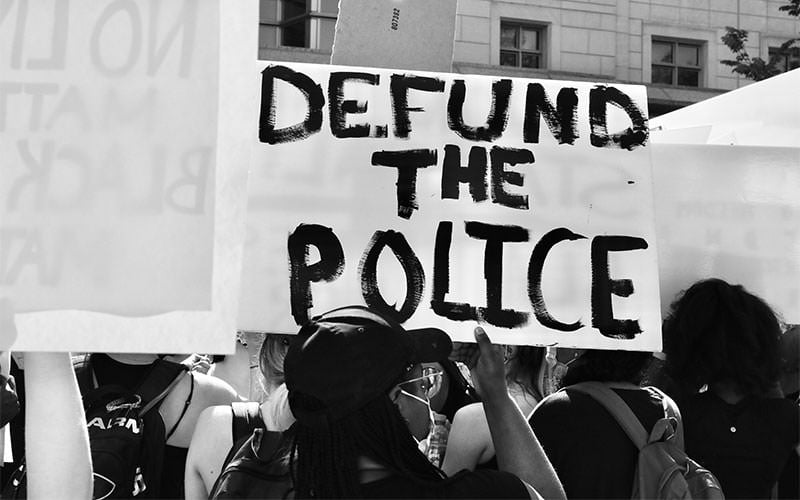PHOENIX – In the wake of George Floyd’s death last May and subsequent demands for social justice for Black Americans, corporations are pledging to improve hiring practices, institute antiracism training and provide more advancement opportunities for people of color.
Others have taken a different approach – vowing to specifically address health disparities that leave Black people more likely than whites to die from heart disease, stroke, cancer, asthma, diabetes and, now, COVID-19.
Pharmaceutical giants Bristol Myers Squibb and Novartis, along with FitBit and Bank of America, are among those promising to act to address disparities in health care, even as some local and state leaders declare racism itself to be a public health issue.
“All those commitments are good and they’re needed. It’s sad that it took a revolutionary act in the murder of George Floyd to bring about some of this attention,” said Steven Humerickhouse, executive director of The Forum on Workplace Inclusion, a diversity and inclusion resource hub at the University of St. Thomas in Minneapolis.
“The health disparities, that diversity and inclusion stuff in health care, literally becomes a life and death situation.”
The coronavirus pandemic has renewed attention on how diseases disproportionately affect people of color. Federal statistics show Black Americans have the highest COVID-19 death rates; they are more than twice as likely as whites to die from the disease and almost five times more likely to be hospitalized.
People of color also still are poorly represented in clinical trials for a COVID-19 vaccine.
Beyond COVID, research shows that Black people are more likely than white people to lack health insurance, not be able to see a doctor because of cost, and to describe their health as fair or poor.
Bristol Myers Squibb, along with Bristol Myers Squibb Foundation, plans to commit $300 million to address some of these problems with initiatives that include:
- Training 250 new racially and ethnically diverse clinical investigators over a five-year span to help enroll underserved patients to clinical trials.
- Accelerating efforts to reach at-risk patients with more education programs and information about programs for people who can’t afford medication.
- Spending $1 billion globally by 2025 with suppliers owned by people of color.
Winselow Tucker, a senior vice president and general manager with Bristol Myers Squibb, said in an interview that this reflects a commitment by the corporation “to, in a meaningful way, take a step forward.”
“I’m just really happy that the organization is doing something in such a comprehensive way,” he said.
Tucker, who is Black, said the drugmaker will provide regular updates on its progress and release a transparency report in early 2021 providing data specifically related to workforce representation.
“We know that we’ve reached parity from a gender perspective,” he said, adding that 41% of executive roles at the company are held by women.
Headquartered in New York City, Bristol Myers Squibb employs about 30,000 people globally. As of July 2018, according to internal statistics, more than 50% of employees were women and about 30% were people of color.
Although less specific with details, Novartis also is promising to increase patient diversity in clinical research and do more to combat diseases that disproportionately affect Black Americans.
Bank of America has pledged to spend $1 billion over four years to address racial inequality. Although much of the effort focuses on jobs training and small business support, the company said last month that $25 million would go toward providing personal protective equipment and additional philanthropic support to minority communities adversely affected by COVID-19.
“Underlying economic and social disparities that exist have accelerated and intensified during the global pandemic,” CEO Brian Moynihan said in a statement. “We all need to do more.”
Fitness tracker company FitBit has vowed to promote research projects that address health disparities among Black people while highlighting Black health and fitness leaders.
This summer, after Floyd was killed while in the custody of Minneapolis police, data intelligence company Morning Consult surveyed more than 11,000 consumers, decision makers and others about their expectations of business leaders in combating racial and social inequality.
The survey found 68% of respondents felt it was important for CEOs to address the issue, although more people saw that as a role for the general public, police, governors and the president.
Some 81% of respondents said CEOs should express or reaffirm their commitment to diversity in hiring but also provide specifics on how they will make it happen.
Rosalyn Taylor O’Neale designs diversity and inclusion initiatives and leads workshops for corporations, government agencies and other entities as a consultant at Cook Ross, based in Silver Spring, Maryland.
“We help organizations to figure out: How do you maximize the contributions by creating an inclusive culture where people feel like they can be authentic and belong?” she said. “Having a visibly diverse environment where people can be authentic is crucial to their success as an organization.
“My job is to help them answer the question, ‘Why is this important?’ and, ‘Why now?'”
The country’s shifting demographics, in addition to heightened awareness of racial inequality because of the police killings of Black men and women, point to the need for change in the workplace, she said.
“The consumer has changed. The vendors have changed. The decision makers who are talking to corporate leaders have changed,” she said. “And that created a need inside corporations specifically to address what hasn’t been addressed, which is we have a small group of people who make 90% of the decisions.
“That means that you have a large workforce that you’re underutilizing.”
Humerickhouse said Target is one example of a company that’s done a good job of listening and partnering with underserved communities in Minnesota, where its headquarters are.
But for equity, diversity and inclusion to be the future of corporate America, companies must focus not just on new pledges and policies now – but also down the road, he said.
“If companies aren’t committed to inclusion and diversity in the long term, change will not be sustainable,” Humerickhouse said. “It’ll be: `Yeah, they spent their money, but will they really have changed what the problem is?'”



